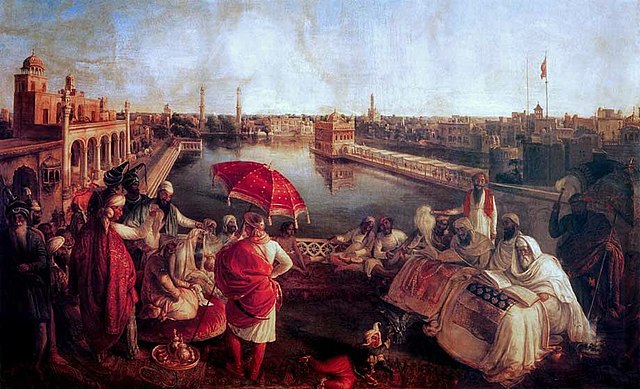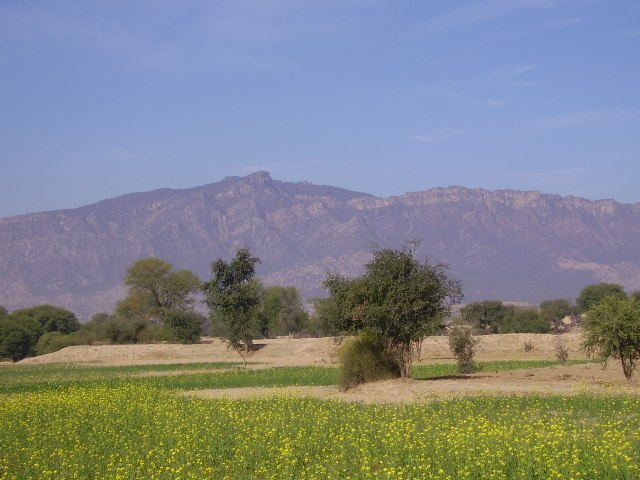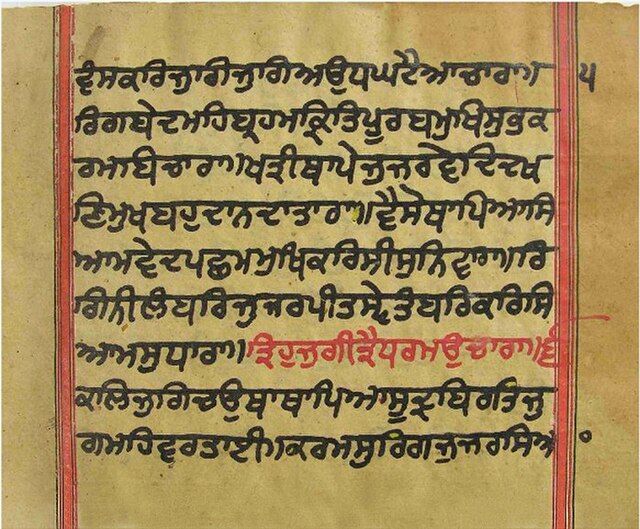Sikhs are an ethnoreligious group who adhere to Sikhism, a religion that originated in the late 15th century in the Punjab region of the Indian subcontinent, based on the revelation of Guru Nanak. The term Sikh has its origin in the Sanskrit word śiṣya, meaning 'seeker', 'disciple' or 'student'. According to Article I of Chapter 1 of the Sikh Rehat Maryada, the definition of Sikh is: Any human being who faithfully believes in
One Immortal Being
Ten Gurus, from Guru Nanak Sahib to Guru Gobind Singh Sahib
The Guru Granth Sahib
The utterances and teachings of the ten Gurus and
The initiation, known as the Amrit Sanchar, bequeathed by the tenth Guru and who does not owe allegiance to any other religion, is a Sikh.
Maharaja Ranjit Singh listening to Guru Granth Sahib being recited at the Golden Temple, Amritsar
Harpreet Kaur Chandi, a British Sikh and the first woman to reach the South Pole solo and unsupported
Jagmeet Singh, Canadian Sikh politician
American Sikhs
Punjabi, sometimes spelled Panjabi, is an Indo-Aryan language native to the Punjab region of Pakistan and India, spoken predominantly by the Punjabi people. With approximately 148 million native speakers, it is the eighth most spoken native language in the world. It also has a few million additional speakers which, along with native speakers, makes it the twelfth most spoken language by the total number of speakers in the world.
Tilla Jogian, Jhelum District, Punjab, Pakistan, a hilltop associated with many Nath jogis (considered among compilers of earlier Punjabi works)
"Jallianwala Bagh" written in Hindi, Punjabi, and English in Amritsar, India.
Varan Gyan Ratnavali by 16th-century historian Bhai Gurdas.
Ghadar di Gunj 1913, newspaper in Punjabi of Ghadar Party, US-based Indian revolutionary party.








